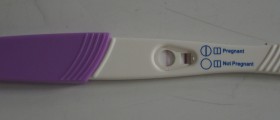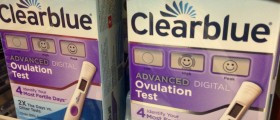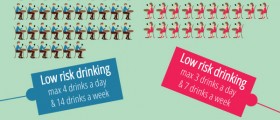
This study did not find any conclusive relationship between the male partner's drinking patterns and likelihood of conception. When researchers looked at the survey participants' diaries of alcohol consumption and women's menstrual cycle data more carefully, they found that the only drinking by women and only on days 14 through 21 of the menstrual cycle made a difference in pregnancy rates. Since most women are at their peak fertility on days 11 through 16 of their menstrual cycle, the researchers believe that the way alcohol interferes with pregnancy is by interfering with the implantation of the egg in the lining of the uterus. The egg is fertilized, but the embryo is never developed, because alcohol acts in much the same way as a morning-after pill.
Drinking alcohol, however, does not guarantee the fertilized egg will not be implanted. Another reason women seeking to conceive should avoid alcohol is the potential for fetal alcohol syndrome. Women do not know they are pregnant until they miss a period. Conception occurs 10 to 17 days before a woman misses her period. If the mother has been drinking during those 10 to 17 days, the embryo could already suffer damage from the effects of alcohol.
The Danish researchers found that beer, wine, and hard liquor were equally likely to interfere with a woman's ability to conceive. The survey data also showed that men's ability to become fathers trended downward with higher alcohol consumption, but the data were not conclusive that alcohol consumption interfered with male fertility. When there are other fertility issues, however, neither partner should indulge in alcohol. If a man's sperm count or sperm motility is low so that he must abstain from ejaculation for several days to increase semen volume before intercourse timed to coincide with the woman's maximum fertility, alcohol consumption will not help him maintain the discipline to have sex for maximum chances of conceiving a child.

















Your thoughts on this
Loading...